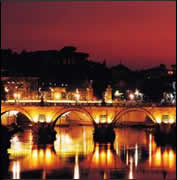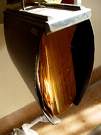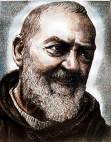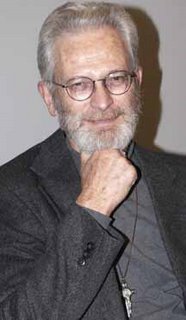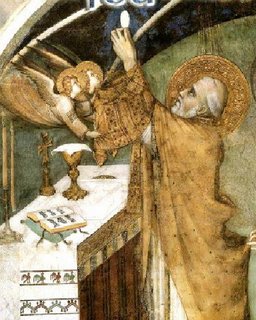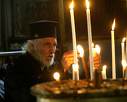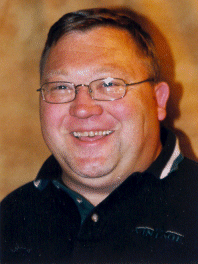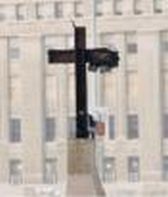Humane Vitae and Evangelium Vitae

In these two papal encyclical letters there are ancient truths that the Church has taught and promulgated from antiquity. Marriage is designed by God to "image" our relationship to Him and therefore is by definition unitive and creative. When we artificially separate the unitive from the creative in the conjugal act, we violate the intention of our marriage vows to give all to our spouse, and the design that God has set in place is thwarted. It would behoove all of us to go back and read both these documents and allow the Holy Spirit to speak to us as we absorb the wisdom from them.
Recently, I have been reading some of the writings of our late Holy Father John Paul 2. He wrote extensively on health care ethics and morality and his teachings are of much interest and utility for me as a physician and a Christian. His comments regarding the relationship of abortion to contraception makes a lot of sense to me. "They are closely connected, the fruits from the same tree." See what you think when you read his comments later on in this blog.
I have known a few rare folks when I was an evangelical who were opposed to contraception but the majority of Protestants and most Catholics these days feel it is an "outdated teaching" of the Catholic Church. Yet before 1930, every Protestant denomination along with the Catholics considered artifical contraception to be sinful. In 1930, the Anglican church at their council of Lambeth approved it for certain circumstances but this opened the floodgates (actually closed the flood gates when you think about it) and every Protestant denomination soon capitulated and changed their view regarding contraception. What was once a sin no longer is by a committee vote ! Pope Paul in his Humane Vitae Encyclical in the 1960's predicted that the widespread use of artificial birth control in the form of "the Pill" would lead to dissolution of marriage, promiscuity, increased abuse towards women as well as abortion. He made these statements before abortion was even legal in the US.
"It is also to be feared that the man, growing used to the employment of anti-conceptive practices, may finally lose respect for the woman and, no longer caring for her physical and psychological equilibrium, may come to the point of considering her as a mere instrument of selfish enjoyment, and no longer as his respected and beloved companion. "
Pope Paul also warned of the dangers of contraception or sterilization being applied from a political ruling authority( As we see in China today) "Who will stop rulers from favoring, from even imposing upon their peoples, if they were to consider it necessary, the method of contraception which they judge to be most efficacious? In such a way men, wishing to avoid individual, family, or social difficulties encountered in the observance of the divine law, would reach the point of placing at the mercy of the intervention of public authorities the most personal and most reserved sector of conjugal intimacy."
Now we get to an excerpt from John Paul II's Encyclical Letter "The Gospel of Life"
Chapter 1 para 13.
"In order to facilitate the spread of abortion, enormous sums of money have been invested and continue to be invested in the production of pharmaceutical products which make it possible to kill the fetus in the mother's womb without recourse to medical assistance. On this point, scientific research itself seems to be almost exclusively preoccupied with developing products which are ever more simple and effective in suppressing life and which at the same time are capable of removing abortion from any kind of control or social responsibility.
It is frequently asserted that contraception, if made safe and available to all, is the most effective remedy against abortion. The Catholic Church is then accused of actually promoting abortion, because she obstinately continues to teach the moral unlawfulness of contraception. When looked at carefully, this objection is clearly unfounded. It may be that many people use contraception with a view to excluding the subsequent temptation of abortion. But the negative values inherent in the "contraceptive mentality"-which is very different from responsible parenthood, lived in respect for the full truth of the conjugal act-are such that they in fact strengthen this temptation when an unwanted life is conceived. Indeed, the pro- abortion culture is especially strong precisely where the Church's teaching on contraception is rejected. Certainly, from the moral point of view contraception and abortion are specifically different evils: the former contradicts the full truth of the sexual act as the proper expression of conjugal love, while the latter destroys the life of a human being; the former is opposed to the virtue of chastity in marriage, the latter is opposed to the virtue of justice and directly violates the divine commandment "You shall not kill".
But despite their differences of nature and moral gravity, contraception and abortion are often closely connected, as fruits of the same tree. It is true that in many cases contraception and even abortion are practised under the pressure of real- life difficulties, which nonetheless can never exonerate from striving to observe God's law fully. Still, in very many other instances such practices are rooted in a hedonistic mentality unwilling to accept responsibility in matters of sexuality, and they imply a self-centered concept of freedom, which regards procreation as an obstacle to personal fulfilment. The life which could result from a sexual encounter thus becomes an enemy to be avoided at all costs, and abortion becomes the only possible decisive response to failed contraception.
The close connection which exists, in mentality, between the practice of contraception and that of abortion is becoming increasingly obvious. It is being demonstrated in an alarming way by the development of chemical products, intrauterine devices and vaccines which, distributed with the same ease as contraceptives, really act as abortifacients in the very early stages of the development of the life of the new human being."
John Paul didn't live to see the day in America where women can now buy a medication "Plan B" (without a prescription in some states) to abort their baby at even the earliest stages but his foresight matches that of his predecessor Pope Paul.
To read a concise review of birth control from a Catholic perspective see :
Catholic Answers.
Labels: prolife issues



